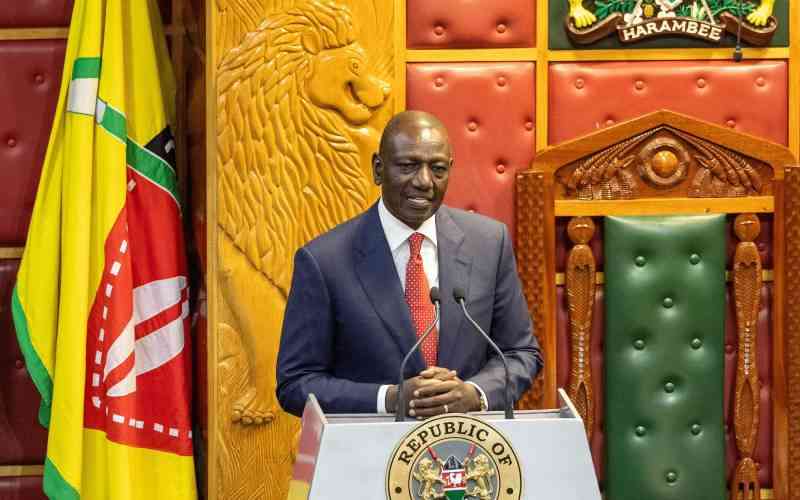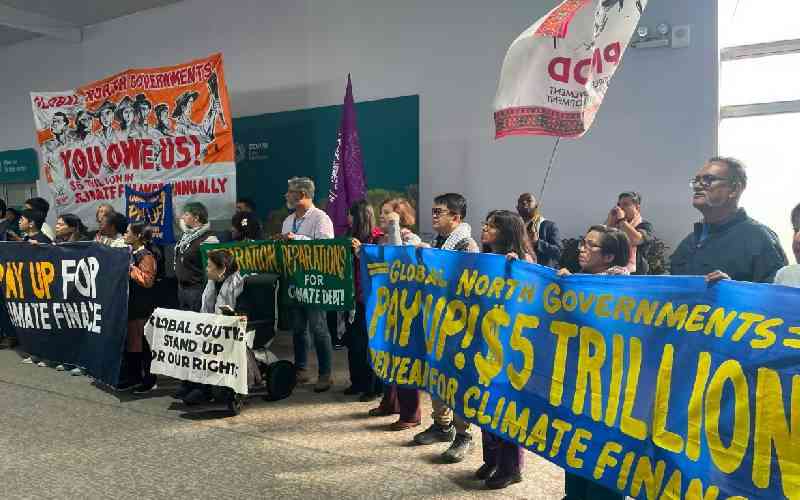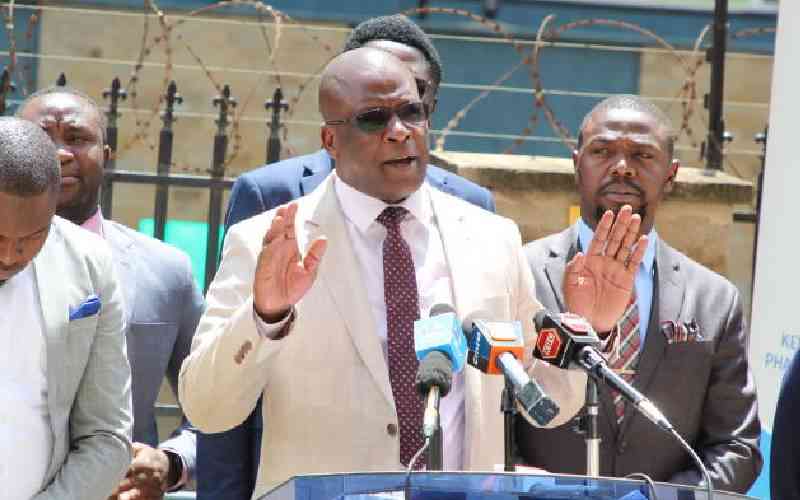
Community Forest Association member during the signing of jilore Forest Management Agreement (FMA) in Kilifi County(PHOTO: JACKSON BAMBO)
NAIROBI, KENYA: Climate Change is a global phenomenon, and its impacts are real in Kenya. Scientists predict that the increasing frequency of extreme weather, such as drought and flooding among other drastic climatic changes, will become more severe in coming years. Based on this Kenya enacted the Climate Change Act 2016, but to ensure its full implementation, including active participation and informed decision making on issues affecting women and youth as relates to climate change, we in the forestry sector cannot ignore a critical aspect of climate transformation: empowering women, youth, marginalized and people living with disability through access to finance, skills and technology. This is only possible if they are nominated to take leadership roles in the National Climate Change Council.
Women and youth’s access to finance and adaptive skills is central to addressing climate change. Women and youth make up 90 percent of the world’s poor, and it is common knowledge that climate change disproportionately affects the have nots. Floods, droughts, land degradation, displacements all have a disproportionately greater negative effect on the livelihoods of the poor than the rich, further pushing them to the bleak edge of deprivation. In Kenya women and youth, especially poor rural women and youth, are dependent on these resources for their livelihoods on forests and other natural resources that are threatened by climate change. Access to finance and adaptive skills breaks down many barriers, including access to less fragile agricultural lands, better safety nets, access to clean energy for lighting and cooking, easy mobility in case of natural disasters, and the ability to engage in alternative livelihoods such as off-farm and nature based employment.
Simple farm tools like hoes are last-century technology and have no place in the era of digitization and resource efficiency. Kenya cannot build low-carbon and climate-resilient economy on the back of rudimentary technologies and policies. Information is power; for climate change, this means that community forest associations and rural farmers – most likely to be women and youth– must be able to receive early warning climate information that enables them make smart decisions on seeds, sowing and harvesting times, risks, markets, etc. With technology, as mobile phone technology has proven, Kenya is capable of leapfrogging into an era of digitization which minimizes risks and cuts costs of doing business. Kenyan women and youth have shown potential to compete in this digital workspace – K-Macho App, JuaKali, and ICow mobile app, are only a few of the women and youth-led tech startups with prospects in Kenya. With the right amount of capital, these start-ups can be scaled up to generate Kenya-specific technologies that would enable Kenyans to deliver their Paris Agreement Nationally Determined Contributions (NDCs) commitments to help reduce global temperature to below two degrees Celsius. Imagine how big that contribution would be if women and youth– half of the world’s population – were given a chance to sit on the National Climate Council.
Linked to the technology challenge is the skills challenge. The right skills set is critical to lifting women and youth out of poverty and ultimately managing climate change. Kenya together with other African countries negotiated hard to get loss and damage recognized by the Paris Agreement. This is a commendable feat, but it will not serve any purpose if the loss sufferers (again, mostly women and youth) are not equipped to deal with climate change. It is not sufficient to engage in technology transfer if the target communities are not skilled to use the technologies. With the right investment in their tertiary education, women and youth are equally capable of designing and become users of technologies that best fit their communities. In addition, given rural women and youth’s symbiotic relationship with nature, they possess indigenous knowledge that would enable them to truly make technology appropriate for their communities. This is only possible if they sit at the highest decision making National Climate Change Council as envisaged by the Climate Change Act 2016
But skills alone don’t go far without empowerment to decision-making and ownership. Until the women and youth who will be chosen in the National Climate Change Council are empowered to own the means of production, make decisions about their livelihoods, and possess the right skills – there will be very little progress in combating climate change in Kenya.
The Constitution of Kenya 2010, National Climate Change Action Plan 2013-2017, National Climate Change Response Strategy, Climate Change Act 2016 and The Forest Conservation and Management Act 2016 sets out a transformative agenda, including targeted analytical tools to mainstream gender and youth into national development initiative. Good initiatives are emerging out of this. In Kenya, the Menengai geothermal power project includes core indicators that generate gender disaggregated data to assess the project’s impact on improved access to electricity by the target population. Rural communities are also embracing solar powered charging using M-KOPA.
Facts show that there is actually great benefit in not giving women and youth rudimentary tools like hoes. The McKinsey Global institute estimates that giving women opportunities equal to men would add US $12 trillion to global growth; that is good business by any standard. But it requires thinking outside the small farm tool mentality to get there!
The writer is National Coordinator Kenya Forests Working Group
 The Standard Group Plc is a multi-media organization with investments in media platforms spanning newspaper print
operations, television, radio broadcasting, digital and online services. The Standard Group is recognized as a
leading multi-media house in Kenya with a key influence in matters of national and international interest.
The Standard Group Plc is a multi-media organization with investments in media platforms spanning newspaper print
operations, television, radio broadcasting, digital and online services. The Standard Group is recognized as a
leading multi-media house in Kenya with a key influence in matters of national and international interest.











